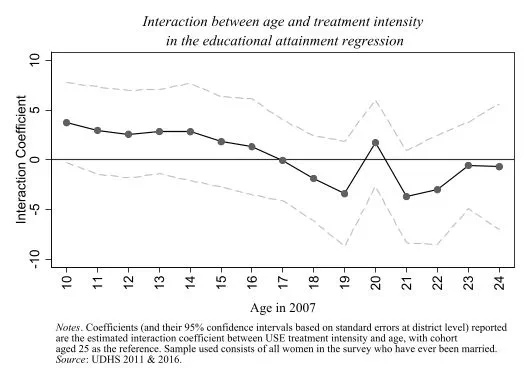Prevalence of Intimate Partner Violence in Uganda: The Role of Education
Jul 1, 2024·
 ·
0 min read
·
0 min read
Douglas Kazibwe

Abstract
The most prevalent type of violence that women in Sub-Saharan Africa (SSA) experience in their lifetime is intimate partner violence (IPV). Often, they do not report cases of IPV because of tolerance of violence rooted in their socio-cultural norms, beliefs and practices. We study the effects of education on IPV using an exogenous shock to education generated from the 2007 Universal Secondary Education (USE) program in Uganda, which aims to improve access to secondary school education through the abolition of fees and increased school capacity at the community level. The program has increased primary-to-secondary transition rates, especially in areas that initially had low transition rates. Our identification strategy compares changes across cohorts and districts with varying pre-program primary-to-secondary transition rates. Our findings show that USE has increased female education attainment, resulting in a decline in the likelihood of these women experiencing psychological IPV, but we find no significant changes in physical and sexual IPV. Additionally, we find improvements in women’s decision-making autonomy and a decline in acceptance of IPV, which could be important channels for explaining the impact of education on IPV.
Type